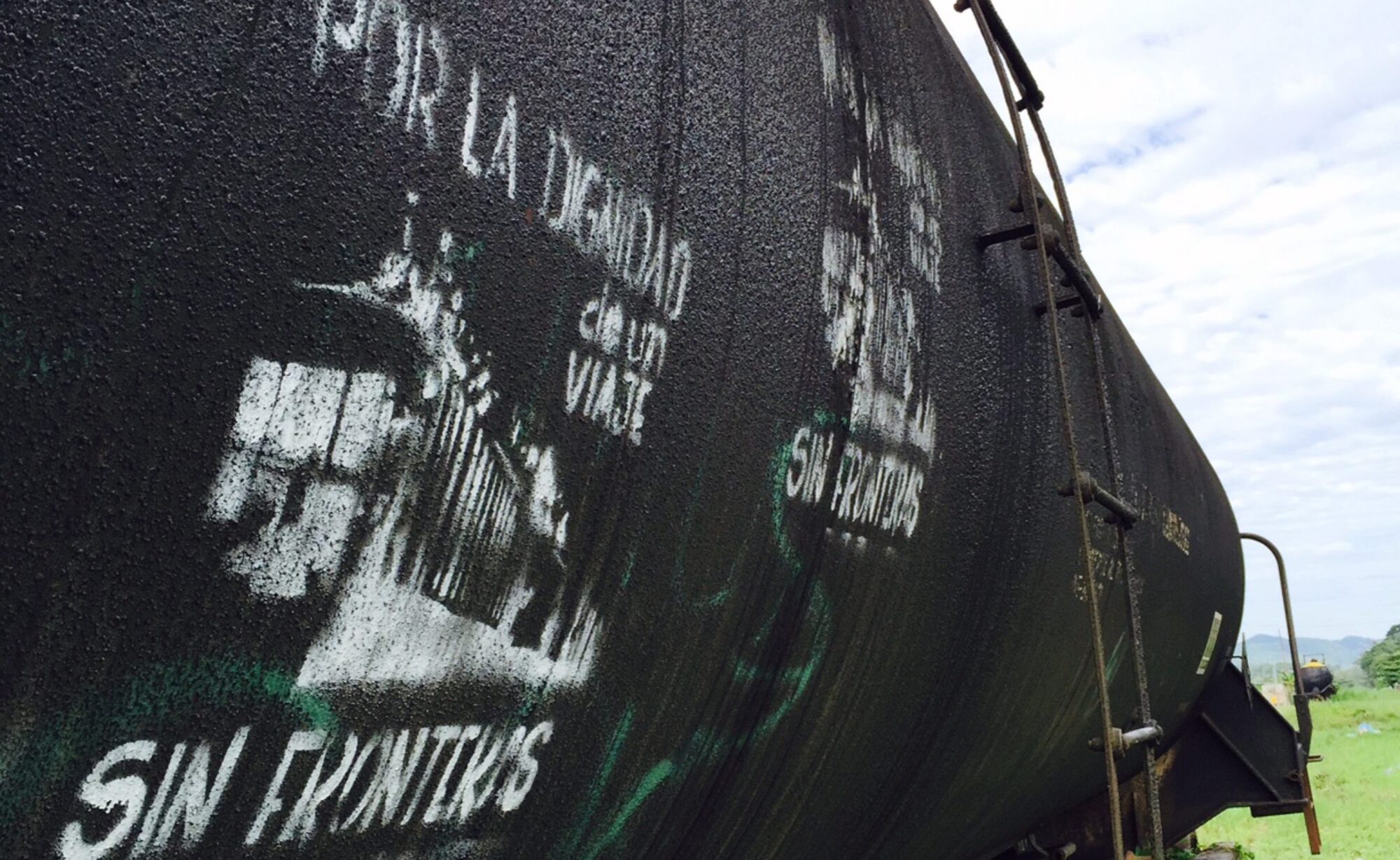I see a man on the edge of the road. He looks both desperate and ragged and waves his arms for me to pull over my car. We are in southern Arizona, about twenty miles north of the U.S.-Mexico border. Behind the man is the Sonoran Desert — beautiful twisting saguaros, prickly pear, and cholla cacti — the living earth historically inhabited by the indigenous communities of the Tohono O’odham Nation. As I stop, the man rushes to my side of the car. Speaking in Spanish, he tells me his name is Juan Carlos. He tells me he is from Guatemala. He gulps down the water I offer him and asks if I can give him a ride to the nearest town.

Just an hour earlier, majestic saguaros and elegant ocotillos surrounded me as I hiked out of the Baboquivari Peak Wilderness with Tohono O’odham elder David Garcia. The night before, we had seen two heavily armed U.S. Border Patrol agents monitoring a trail we used to reach the peak of the mountain.
The Baboquivari Peak, where Garcia once fasted for many days to ask for guidance, is sacred to the Tohono O’odham. At points along the path up the slope, we could see layers of mountains extending for hundreds of miles, deep into Mexico. When you are up there you do not see the Border Patrol. You do not see the fleet of green-striped ground vehicles. You do not see the border wall. From up there, the border does not exist. Nations do not exist. The Earth appears as one uninterrupted landscape. Absorbing such a view can alter one’s feelings and consciousness in a way few things can.
Edgar Mitchell was the sixth person to set foot on the moon. He described seeing the large, glowing globe of planet Earth as deeply moving: “It was a beautiful, harmonious, peaceful-looking planet, blue with white clouds, and one that gave you a deep sense…of home, of being, of identity. It is what I prefer to call instant global consciousness.” Seeing the land without political boundaries became an insight into what connects us to one another and the planet as a whole. The revelation was sincere and direct. High in the Tohono O’odham’s sacred territory, I felt something similar to what Mitchell describes.
Parked on the side of the road, Juan Carlos asking me for the ride, awareness of our fractured world comes crashing back. I can’t see the agents, surveillance cameras, and sensors, but I know they are all around. I can feel them. Above, one of many drones in the U.S. arsenal could be documenting the moment and streaming data about our location and movements. Agents are armed not only with weapons and technology, but with laws. One such law forbids me from giving Juan Carlos a ride. Doing so would further his unauthorized presence in the United States. If caught, I could be nailed with a federal crime, a felony. In essence, I could get prison time for showing kindness to a stranger.
Read the rest in The Markaz Review here.
